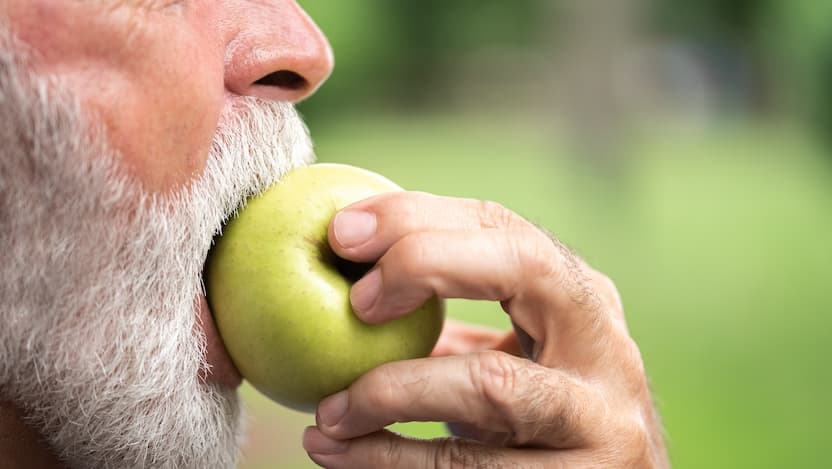Could abnormal mouth function be an early sign of Alzheimer’s disease?

Recent research documents that bacteria found in gingivitis, an inflammatory gum disease, were identified in the brains of Alzheimer’s patients. That makes sense, some say, because Alzheimer’s patients could forget to regularly floss and brush their teeth. Others wonder if the bacterial infection moves into the brain and causes or abets the development of dementia.
But University of Chicago neuroscientist Fritzie Arce-McShane, PhD, suspects that something completely different is in play. She posits that the neural structure that provides the blueprint by which the mouth and supporting facial structures function is damaged by Alzheimer’s disease. That could explain some of the other symptoms seen in these patients, such as increasing difficulty in chewing and swallowing, said Arce-McShane, a research assistant professor who directs a lab in the University’s Department of Organismal Biology and Anatomy.
Arce-McShane also suspects that dysfunction in the brain neurons that control feeding behavior might be visible in brain scanning tests before issues appear. (It usually takes a decade of development before Alzheimer’s disease symptoms show up.) If she is right, there might be a way to detect Alzheimer’s as it silently develops – no such predictive biomarker exists today. And early detection is key to development of a drug that can effectively treat or retard development of Alzheimer’s disease.
Arce-McShane’s hypothesis is a difficult one to test, but the National Institute on Aging (NIA) believes she is the scientist who can do it.
On September 15, the NIA awarded Arce-McShane a five-year grant of more than $6.3 million to study how Alzheimer’s disease disturbs the oral neuromechanics of feeding behavior.
This grant dovetails with another five-year NIH grant awarded to Arce-McShane in 2018. This $2.7 million grant, from the National Institute of Dental and Craniofacial Research (NIDCR), has allowed Arce-McShane and her team map out the neural basis of touch and proprioception (the sense of position) in the orofacial sensorimotor cortex – the part of the brain that controls how, for example, sensations from the tongue are used to move the food in the mouth or to make a sound. “When you pronounce a certain letter, you have to put your tongue in a certain position. When we eat, sensory information is also needed to know when the tongue is touching the front teeth, or touching a food particle,” Arce-McShane said.
The new grant builds on to the first grant by looking at how these brain mechanisms are affected by disease and aging. “So, the interplay between touch and proprioception provides the perception needed to successfully feed. “Because the tongue’s proprioception is controlled by a neural pathway distinct from touch, blocking one network from the other can reveal what may go awry in aging and/or disease.”
Primates are the animal models used in both of these studies of oral sensorimotor behavior because their face structure, feeding behavior and associated brain function are remarkably similar to humans. This is the first in the University of Chicago to study human aging with the help of aged primates. Arce-McShane will use the animal models to map out natural feeding behavior in three groups of primates: healthy young, healthy aged, and aged who model human Alzheimer’s disease. The maps will potentially reveal changes in both populations of neurons and single neurons of interest between the three groups.
“I am very hopeful that we may be able to identify people who are vulnerable to Alzheimer’s disease or dementia, and help them,” Arce-McShane says. Difficulty in swallowing is prevalent in many disorders, including Parkinson’s disease and patients who have experienced stroke, she said, adding, “The cortical and biomechanical control processes that underlie even normal feeding behavior is unknown.”
“Receiving such R01 grants, one right after the other, is very impressive in this tough funding environment, and especially so for a researcher that recently started a lab. Furthermore, understanding feeding behavior is extremely complex, and Dr. Arce-McShane is uniquely qualified to take on this extremely specialized field,” said Nicholas Hatsopoulos, PhD, Professor in the Department of Organismal Biology and Anatomy. Hatsopoulos was previously a postdoctoral mentor to Arce-McShane, and he is a collaborator on both grants.
